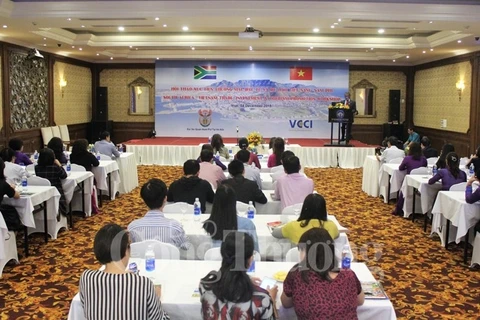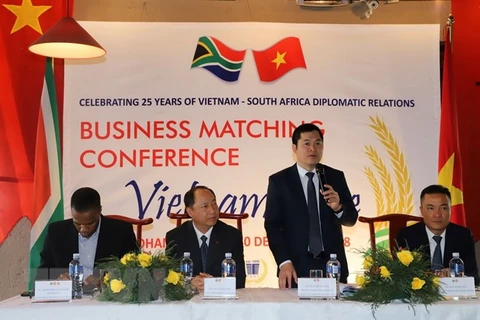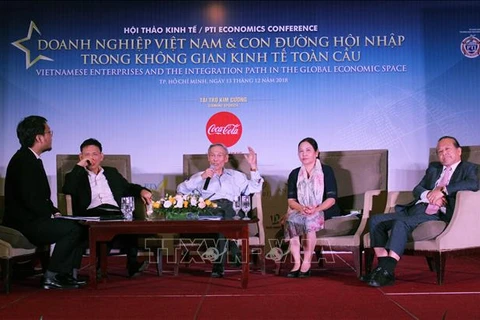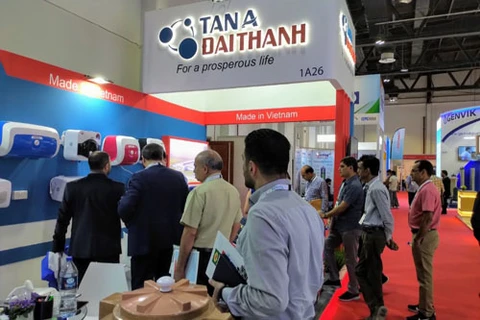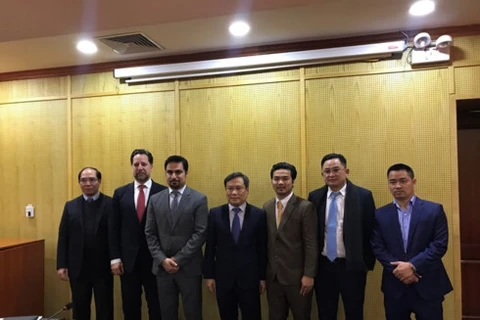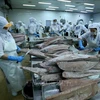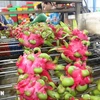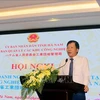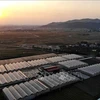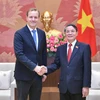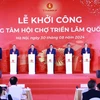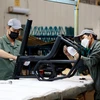HCM City (VNA) – Vietnamese enterprises should engage more in trade promotion activities in the Middle East and Africa, particularly as its traditional export markets are becoming oversaturated.
The Middle East and Africa, with their high demand for imports, are deemed as potential markets for Vietnamese products, experts said at an international conference held in Ho Chi Minh City on December 20.
By 2020, Africa needs to buy some 1.2 trillion USD worth of products from foreign countries, while the Middle East will have to spend 1.5 trillion USD on imports.
According to Nguyen Minh Phuong, a representative from the Ministry of Industry and Trade’s Department of Asia-Africa Markets, Vietnam earned 2.7 billion USD from exports to Africa in 2017, with large importers being South Africa, Egypt, Algeria, Ghana, and the Ivory Coast. Major Vietnamese exports are rice, mobiles and spare parts, seafood, computers, coffee, garments, pepper, and machinery.
Vietnam splashed out 6.7 billion USD to purchase cashew nuts, cotton, timber and wooden products, precious metals, copper, minerals, animal feed, and others from African countries, mostly the Ivory Coast, Nigeria, Tanzania, and Ghana.
The Department of Asia-Africa Markets is stepping up trade promotion and offering support to Vietnamese firms looking to break into African countries, who have a wide range of cooperation programmes with Vietnam, she said.
Regarding the Middle East, another representative from the department, Pham Hoai Linh, said that the 15 Middle East nations hold strengths in finance and sci-tech. They boast huge purchasing power and less demanding consumers, which make it easy for Vietnamese firms to satisfy the markets’ standards.
Harsh natural conditions make the region unable to produce agro and seafood products for domestic consumption. Thus, Vietnamese firms should draw up strategic and long-term strategies to enter those potential markets.
Experts at the event suggested that products with developed branding and quality that meet the standards of each nation should be paid significant attention. In addition, Vietnamese companies need to build a distributing network, open representative offices in the markets, and keep close contact with the Vietnamese Embassies and trade offices in the region.
Meanwhile, Tran Thi Minh Thu, an official from the Government Committee for Religious Afairs, said that domestic companies should study Muslim culture, business culture, and Halal standards before approaching potential partners in the region. –VNA
The Middle East and Africa, with their high demand for imports, are deemed as potential markets for Vietnamese products, experts said at an international conference held in Ho Chi Minh City on December 20.
By 2020, Africa needs to buy some 1.2 trillion USD worth of products from foreign countries, while the Middle East will have to spend 1.5 trillion USD on imports.
According to Nguyen Minh Phuong, a representative from the Ministry of Industry and Trade’s Department of Asia-Africa Markets, Vietnam earned 2.7 billion USD from exports to Africa in 2017, with large importers being South Africa, Egypt, Algeria, Ghana, and the Ivory Coast. Major Vietnamese exports are rice, mobiles and spare parts, seafood, computers, coffee, garments, pepper, and machinery.
Vietnam splashed out 6.7 billion USD to purchase cashew nuts, cotton, timber and wooden products, precious metals, copper, minerals, animal feed, and others from African countries, mostly the Ivory Coast, Nigeria, Tanzania, and Ghana.
The Department of Asia-Africa Markets is stepping up trade promotion and offering support to Vietnamese firms looking to break into African countries, who have a wide range of cooperation programmes with Vietnam, she said.
Regarding the Middle East, another representative from the department, Pham Hoai Linh, said that the 15 Middle East nations hold strengths in finance and sci-tech. They boast huge purchasing power and less demanding consumers, which make it easy for Vietnamese firms to satisfy the markets’ standards.
Harsh natural conditions make the region unable to produce agro and seafood products for domestic consumption. Thus, Vietnamese firms should draw up strategic and long-term strategies to enter those potential markets.
Experts at the event suggested that products with developed branding and quality that meet the standards of each nation should be paid significant attention. In addition, Vietnamese companies need to build a distributing network, open representative offices in the markets, and keep close contact with the Vietnamese Embassies and trade offices in the region.
Meanwhile, Tran Thi Minh Thu, an official from the Government Committee for Religious Afairs, said that domestic companies should study Muslim culture, business culture, and Halal standards before approaching potential partners in the region. –VNA
VNA

